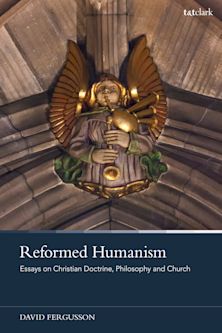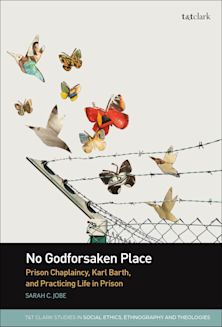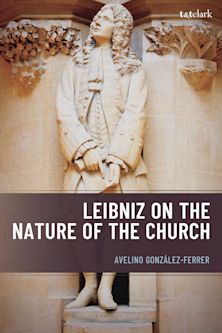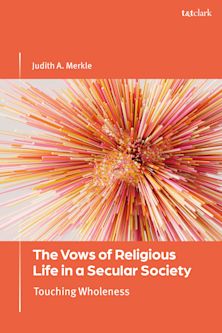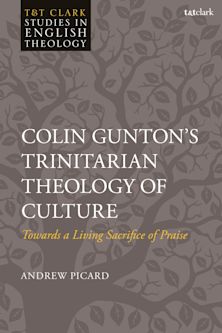- Home
- ACADEMIC
- Theology
- Ecclesiology
- Receiving 'The Nature and Mission of the Church'
Receiving 'The Nature and Mission of the Church'
Ecclesial Reality and Ecumenical Horizons for the Twenty-First Century
Receiving 'The Nature and Mission of the Church'
Ecclesial Reality and Ecumenical Horizons for the Twenty-First Century
Please note that this product is not available for purchase from Bloomsbury websites.
You must sign in to add this item to your wishlist. Please sign in or create an account
Description
A collection of essays and assessments in which scholars from a variety of denominational, geographical and ecclesiological backgrounds attempt to discern the significance of the 2006 document Nature and Mission of the Church from the World Council of Churches. Thereby offering doctrinal, theological and hermeneutical perspectives and analysis on its formation and content. The essays also seek to discern the potential ecumenical ramifications of the document.
Contributions also address futures for ecumenical dialogue and the development of an ecumenical ecclesiology in general. This is an apposite and timely collection of responses which includes contributions from those who witnessed its launch in the context of the WCC in 2006 at Porte Allegre. Whilst so many books on the church already exist, the focused nature of the proposed volume, as well as the international, and broad denominational range of the contributors, makes this proposed volume unique.
Table of Contents
Introduction - Michael A. Fahey, Boston College, USA
1. The Context of the document: Porte Allegre - Fr K. M. George, Orthodox Seminary, Kottayam, Kerala, India
2. The Nature and Mission of the Church Communion: God, Creation, and Church - Paul Collins, University of Chichester, UK
3. How to Express the Link between the Church and the Holy Trinity in a Common Ecumenical Discourse? An Analysis of Recent Ecumenical Documents on the Nature of the Church - Peter De Mey, Catholic University of Leuven, Belgium
4. Called to be the One Church? The Unity Statements of the WCC and Their Reception in the Document "The Nature and Mission of the Church"- Risto Saarinen, University of Helsinki, Finland
5. Pentecostal Perspectives on The Nature and Mission of the Church - Wolfgang Vondey, Regent University, USA
6. Is There a Future for the Catholic-Protestant Ecclesiological Dialogue? The Non-reception and a Challenge for Ecumenical Dialogue - Korinna Zamfir, Babes-Bolyai University, Romania
7. Are Councils and Synods Decision Making? A Roman Catholic Conundrum in Ecumenical Perspective - Bradford E. Hinze, Fordham University, USA
After-word - John Hind, Bishop of Chichester, UK
Product details
| Published | Jun 13 2008 |
|---|---|
| Format | Ebook (PDF) |
| Edition | 1st |
| Extent | 176 |
| ISBN | 9780567133069 |
| Imprint | T&T Clark |
| Series | Ecclesiological Investigations |
| Publisher | Bloomsbury Publishing |
About the contributors
Reviews
-
'Opening remarks by Gerard Mannion remind us of the nature of the new reality in human organization which was the church, a movement that had spread far from its roots before it was an official religion of the Roman Empire. With a sense that our world today mirrors the class, religious and race divisions of those first years, our editors describe the inception and purpose of the movement out of which this book arises, the Ecclesiological Investigations International Research Network and its work as reflected through the American Academy of Religion and other venues. Through the inclusivity of authors in this volume, the editors are quick to affirm the links between ecclesiology and the contemporary socio-economic and political settings in which churches find themselves.' Rodney L. Petersen, Boston Theological Institute
Rodney L. Petersen
-
Mention -Book News, February 2009
-
'This book on ecumenical "reception" marks the emergence of a new arena for that very activity; it is the first published product of a new independent global community of scholars for whom ecclesiological issues are not only of institutional import but of serious personal, intellectual,and ethical concern.' Lewis S. Mudge, San Francisco Theological Seminary, Berkeley
Lewis S. Mudge, Theological Studies












